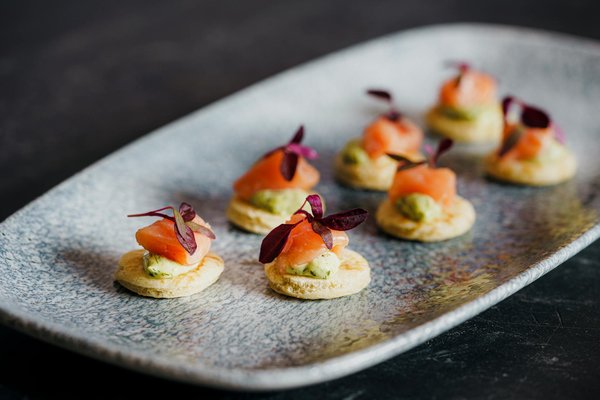Legacy of British Culinary Traditions in Modern Kitchens
British culinary legacy has profoundly influenced contemporary cooking styles and kitchen practices. At its core, traditional British food emphasizes hearty, comforting dishes that celebrate locally sourced ingredients and simple preparation techniques. This foundation has shaped modern kitchen innovations, blending time-honored recipes with new cooking technologies.
Historical British cuisine is characterized by recipes that have endured for centuries. Many kitchens today still honor these traditions, incorporating classics such as roast beef with Yorkshire pudding, fish and chips, and steak and kidney pie. These dishes remain staples because they encapsulate both cultural identity and culinary simplicity. Their preparation methods, often passed down through generations, continue to guide cooking techniques in homes and professional kitchens alike.
Moreover, the significance of historical recipes extends beyond their flavors. They provide a framework for understanding British food culture and offer inspiration for contemporary twists. Modern chefs and home cooks alike adapt these traditions incorporating kitchen innovations such as sous vide cooking or air frying, which enhance texture and flavor while preserving the essence of traditional British dishes.
In essence, the British culinary legacy is not just about preserving recipes but also sustaining a connection to heritage. It informs eating habits today by reinforcing the value of seasonal ingredients, consistent flavors, and communal dining experiences that have defined British cuisine throughout history.
Evolution of Cooking Techniques and Tools
The legacy of British cooking techniques has profoundly shaped modern culinary practices. Many traditional methods—such as slow roasting, pan-braising, and steaming—continue to influence how chefs prepare dishes today. These techniques emphasize flavor development through gradual heat application, a principle still fundamental in contemporary cooking.
Parallel to these methods, kitchen tool innovation has transformed the way we approach food preparation. Classic utensils like cast iron pans and manual grinders have given way to electric equivalents and smart appliances. Yet, the core functionality of these tools remains rooted in their traditional designs, showing a clear adaptation and modernization from their original forms.
For example, the traditional British spit roast has evolved into conveyor rotisseries and smart ovens that can monitor cooking through sensors. Similarly, wooden rolling pins and hand-cranked mixers now coexist with digital scales and programmable food processors. These advancements retain the essence of British culinary heritage while enhancing efficiency.
Understanding this blend of traditional vs. modern cooking allows cooks to harness both the time-tested techniques and innovative tools to achieve exceptional results. This balance is essential for anyone looking to master the art of cooking influenced by British methods, offering both the nostalgic charm of conventional practices and the convenience of modern technology.
Fusion of Old and New in Contemporary Dishes
British fusion cuisine beautifully marries traditional flavors with modern twists, creating contemporary British food that appeals to diverse palates. A prime example is the reinvention of classic dishes like fish and chips, which some chefs have updated by incorporating Asian spices or serving with inventive dipping sauces. Another popular fusion dish is the Scotch egg reimagined with global ingredients, reflecting how modern British recipes embrace international influences while honoring local roots.
Leading chefs often emphasize that this blend is not about discarding tradition but enhancing it. As one chef puts it, “The key to British fusion cuisine is respecting the foundation while daring to experiment.” This perspective drives the culinary scene to evolve continuously, offering diners familiar tastes accentuated with novel elements.
By understanding and integrating global techniques and flavors, contemporary British food maintains its identity yet feels fresh and exciting. This balance is evident in dishes that retain their British soul through ingredients like lamb or root vegetables but adopt creative preparations, embodying both heritage and innovation.
British Culinary Traditions Shaping Global Kitchen Trends
British influence on global cuisine extends far beyond traditional dishes like fish and chips or afternoon tea. This rich culinary heritage has contributed to modern international kitchen trends through recipe adaptation and innovation. British culinary practices often blend locally sourced ingredients with techniques borrowed from former colonies, creating unique flavors that resonate worldwide.
One key aspect of British influence on global cuisine is its pivotal role in popularizing comfort foods and hearty meals, which have been adapted internationally to fit local tastes. British-inspired innovations, such as the use of specific spices and baking methods, have set trends in kitchens globally, encouraging chefs to experiment with fusion menus. These adaptations showcase how British culinary traditions remain flexible and open to cross-cultural exchanges, distinguishing them from other culinary traditions that may be more rigid.
Comparatively, British cuisine has incorporated influences from Indian, Caribbean, and Southeast Asian cultures, enriching its culinary repertoire and exporting these hybrid dishes abroad. This dynamic interplay encourages a vibrant evolution in international kitchen trends, demonstrating the lasting impact of British culinary traditions on how food is prepared and enjoyed worldwide.
